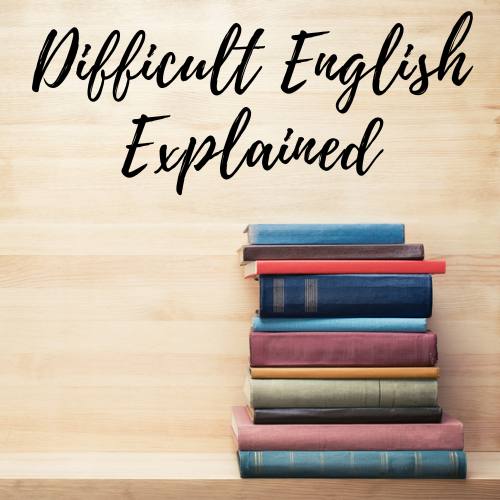
If you want to improve your vocabulary in English, one of the best things you can do is to study the most common prefixes and suffixes for English words. Knowing what they mean will not only help you to remember more words, but it will also give you the ability to guess the meanings of words that you haven’t seen before.
Today I am going to talk about the difference between two prefixes, “un-” and “non-.” Both of them are used to make negative words, but their meanings have some subtle differences.
The meaning of “un-“
“Un-” has two possible meanings. The first meaning is “the absence of a quality that is desirable.” “Un-,” in this sense, can be added to adjectives and adverbs, but it is rarely used with nouns. An example would be, “clean” and “unclean.” There are no known uses of “un-” and a verb with this meaning. When we use “un-” with a verb, it has the second meaning which is “the reverse of an action.” A good example would be “lock” and “unlock.”
The first meaning of “un-” comes from Old English, or English as it was before the 12th century. “Un-” has been actively used to create negative adjectives since the 14th century. It is still very productive. When we say “productive,” we mean that “un-” is still being used to make new words.
The meaning of “non-“
The prefix “non-” comes from Latin. It means, “to not be a member of a certain class of people or things.” It can be added to adjectives or nouns but not to verbs. An example would be “non-Western.” Anything that is “non-Western” is not a member of the class of Western things. Differently from “un-,” “non-” doesn’t have an implicit value judgement. It simply shows membership. Let’s look at some examples:
- Unchristian versus non-Christian
- A non-Christian person is one who is not a member of the Christian faith. There is no value judgment. It is simply a statement about membership.
- An unchristian person is one who lacks characteristics that define a Christian person. There is a definite value judgement here. “Unchristian” has a strong implication that the person does not possess the virtues associated with a Christian. A non-Christian person is one who doesn’t follow the Christian faith. A non-Christian can be a virtuous member of a different faith. However, an unchristian person is one who lacks the desirable virtues of a Christian. There is a strong implication that the person lacks moral virtues.
- Unnatural versus non-natural
- Non-natural means something that is outside of nature. For example, a synthetic flavoring could be called non-natural. Anything that is produced by humans and that would not occur naturally could be called non-natural.
- Unnatural means something that does not follow the rules of the natural world. Unlike non-natural, there is the implication that natural rules are being violated. For example, “Many people now believe that keeping a wild animal in a cage is unnatural.” The implication is that keeping a wild animal in a cage is a violation of the natural order.
Conclusion
In summary, when we use “un-” to create a negative word, we mean that there is an absence of a quality that is desirable. There is an implicit value judgement with “un-.“ When we use “non-,“ we mean that something is not a member of a certain class of people or things. “Non-“ is simply about membership in a group. There is no implicit value judgement.
References
Dixon, R. M. W. (2014) Making New Words: Morphological Derivation in English, Oxford, United Kingdom: Oxford University Press, pp. 238-239.
The Merriam-Webster Dictionary, https://www.merriam-webster.com/dictionary/unnatural, Accessed June 4, 2024
Would you like to support my content? Make a donation at Buy me a Coffee!
Get notified of new blog posts on my Telegram channel. Sign up at https://t.me/diffengexplnd.
